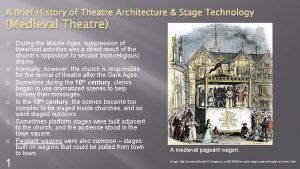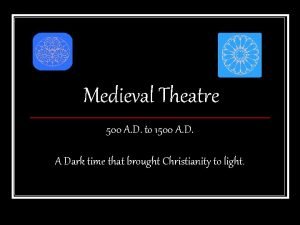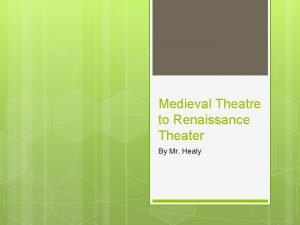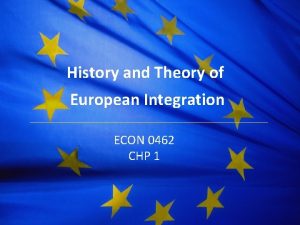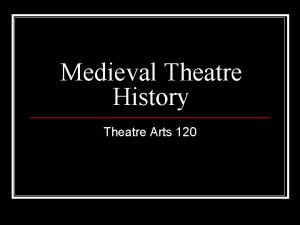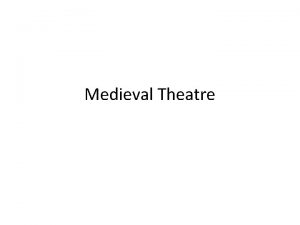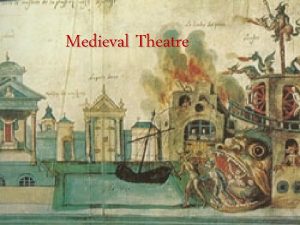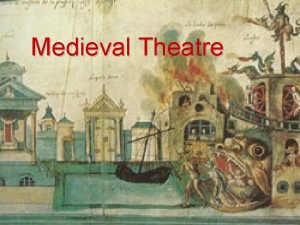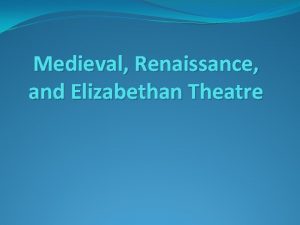The HISTORY of THEATRE Medieval European Theatre Approximately








- Slides: 8

The HISTORY of THEATRE

Medieval European Theatre • • • (Approximately began in the 5 th Century) After the fall of the Roman Empire, cities were abandoned, and Europe became increasingly more agricultural. After several hundred years, towns re-emerged. The Roman Catholic Church dominated religion, education and politics. It also had a strong influence on theatre. Theatre was “reborn” and written in Latin and was performed by priests or church members. Plots were taken from the Christian Bible. Performances also were held to celebrate religious festivals (as in Greek times)

Medieval European Theatre • Later dramas were written in common language (therefore everyone could understand). • These plays were performed in town squares on wagon stages. • There were three types of dramas”: • Mystery plays – based on the Old and New Testament • Miracle plays – based on the lives of the saints • Morality plays – taught a lesson through symbolic characters representing virtues or faults.

Renaissance and Reformation (Approximately began in the 15 th Century) Italy’s Contribution • Further contributions to Theatre were made by Italians through the development of the “picture frame stage”.

Renaissance and Reformation England’s Contribution • In England “apron stages” were used which created a more “open” stage. • Audience members surrounded the stage, and sometimes were on the stage. • The emphasis in plays were on the dialogue. • Later religious themes were replaced by themes of loyalty to the government. • Performers were organized into troupes or companies who developed a repertory of plays that they could perform.

Renaissance and Reformation England’s Experience • In the 16 th Century, England’s government swung back and forth from Catholicism to Protestantism. • Playwrights who worked to revive plays written in Latin, were believed to be supporting the Catholic Church. • Playwrights who worked to revive Greek plays were associated with Protestantism. • Depending on who was in power at the time, a playwright could be put to death for reviving the “wrong” play. • Many playwrights began to avoid the revival of classic work, and wrote non-political and nonreligious plays.

Renaissance and Reformation Theatre is Threatened • The political problems in England at the time made theatre “dangerous”. • Theatres were associated with the temptation to spend time watching performances instead of working. • Added to the political problems, fear of the plague closed theatres. • These conditions lead to the licensing of acting companies which lead to more control of theatre by the state.

Quiz 1. Who had a strong influence on Medieval European Theater? 2. During Medieval European theater where were many of the plots taken from? 3. List the three types of dramas used in Medieval European theater. 4. What was Italy’s contribution to theater? 5. List two of England’s contributions to theater. 6. During 16 th century England the government swung back and forth between what two religions? 7. How did the political problems in England effect theater?

